
Longer hair, lustrous locks have been a symbol of beauty and vitality throughout history, and many people aspire to grow their hair to impressive lengths. However, achieving and maintaining long hair requires more than just patience it demands a dedicated hair care routine and a deep understanding of the factors that contribute to healthy hair growth. In this guide, we will explore a comprehensive set of tips and strategies that can help you on your journey to growing long and beautiful hair.
Whether your hair is naturally short or you’re looking to recover from a recent haircut, these tips encompass a holistic approach to hair care. From nourishing your body with the right nutrients to choosing the appropriate hair care products, avoiding common pitfalls to embracing healthy practices, we’ve got you covered. So, if you’re dreaming of cascading tresses or simply aiming to improve the health of your current length, read on to discover the secrets to unlocking your hair’s full potential and achieving the long, glorious mane you desire.
Nourishing Your Hair from the Inside Out

- The Power of Nutrition
The journey to long hair begins on your plate. The foods you eat play a significant role in the health and growth of your hair. To achieve your dream of long, luscious locks, it’s essential to pay attention to your nutrition.
Your hair is made of a protein called keratin, so it’s crucial to consume enough protein in your diet to support hair growth. Additionally, certain vitamins and minerals are known to promote healthy hair. Biotin, often referred to as “the hair vitamin,” can strengthen hair and prevent breakage. Vitamin E, an antioxidant, can improve blood circulation to the scalp. Omega-3 fatty acids found in foods like salmon and walnuts can help hydrate your hair and keep it shiny.
- Nutrients That Promote Hair Growth
- Biotin: Found in foods like eggs, nuts, and sweet potatoes, biotin is essential for maintaining healthy hair.
- Vitamin E: Sunflower seeds, almonds, and spinach are rich sources of vitamin E, which can enhance hair growth.
- Omega-3 Fatty Acids: Incorporate fatty fish like salmon and walnuts into your diet for lustrous locks.
- Hydration: Your Hair’s Best Friend
Staying hydrated isn’t just good for your overall health, it’s also crucial for the health of your hair. Dehydration can lead to brittle and dry hair. Make sure to drink an adequate amount of water daily to keep your hair looking its best. Hydration can also help with scalp health, as a well-hydrated scalp is more likely to promote hair growth.
Trims Are Not the Enemy For Longer Hair
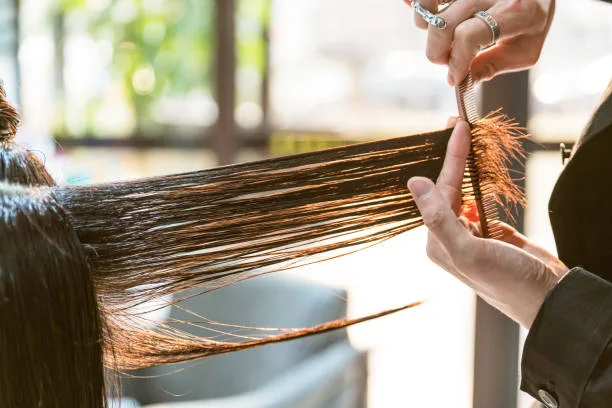
One of the most persistent myths about growing long hair is the idea that avoiding trims will help your hair grow faster. In reality, the opposite is true. Regular trims are essential for maintaining the health of your hair and promoting growth. Trimming your hair every 6-8 weeks can prevent split ends and breakage, which can work their way up the hair shaft, making your hair shorter over time.
A Gentle Hair Care Routine
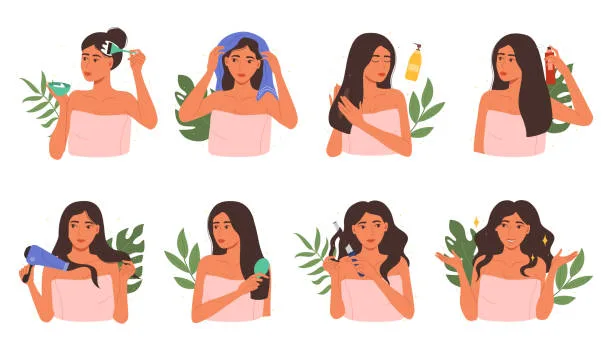
A mild, sulfate free shampoo is your hair’s best friend. Avoid shampoos that strip your hair of its natural oils, as these oils are essential for maintaining moisture and promoting hair growth. When you do shampoo, focus on your scalp and allow the suds to naturally cleanse the lengths of your hair. Rinse thoroughly to remove all shampoo residue.
While styling tools like hair dryers, straighteners, and curling irons can give you the look you desire, they can also cause significant damage to your hair. Excessive heat can lead to dryness, breakage, and a loss of shine. Whenever possible, let your hair air dry, and if you must use heated styling tools, apply a heat protectant to minimize damage.
Choosing the right tools for your hair is vital to minimizing damage and promoting hair growth. When detangling or styling your hair, opt for a wide-tooth comb. It’s gentler on your hair and less likely to cause breakage or split ends than a brush with tightly packed bristles.
A Healthy Scalp for Long Hair
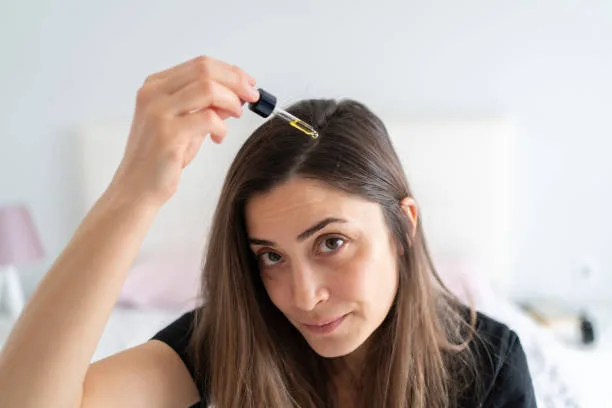
A healthy scalp is the foundation of long, luscious hair. After all, your hair grows from your scalp. Neglecting your scalp can hinder your hair’s ability to grow to its full potential.
Scalp massages aren’t just incredibly relaxing; they can also stimulate hair follicles, improve blood circulation, and promote hair growth. You can use your fingertips or invest in a scalp massaging tool to enjoy the benefits of this simple yet effective practice.
Using natural oils on your scalp can be a game-changer for hair growth. Oils like coconut, jojoba, and castor oil have been cherished for their ability to nourish the scalp and hair. They help maintain a healthy balance of moisture, prevent dandruff, and create an environment where hair can thrive.
A Good Night’s Sleep: A Hair Secret

Believe it or not, the way you sleep can affect the health of your hair. If you’re tossing and turning at night, you might be causing friction and breakage. Consider using a satin or silk pillowcase to minimize the damage and let your hair glide smoothly as you sleep.
Avoiding Tight Hairstyles
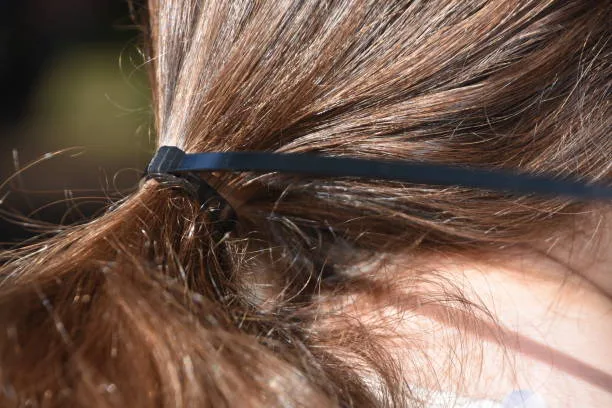
While braids, ponytails, and other tight hairstyles can look fantastic, they can be detrimental to your hair’s health if worn excessively. These styles exert pressure on your hair, leading to breakage, thinning, and even hair loss over time. To grow long hair, you need to strike a balance between rocking these styles and ensuring they don’t damage your locks.
Avoiding Excessive Washing
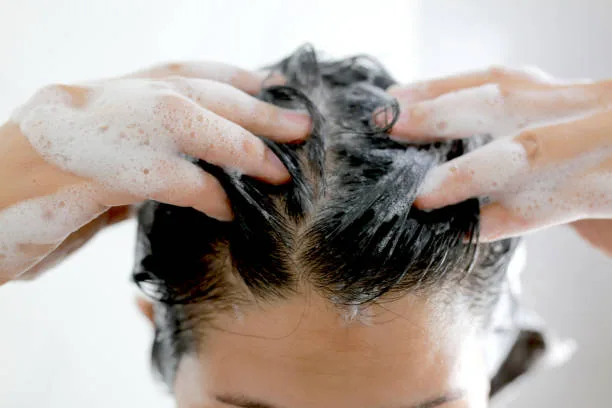
Frequent washing can strip your hair of its natural oils, leading to dryness and breakage. It’s important to strike a balance between maintaining cleanliness and preserving your hair’s natural moisture.
The optimal washing frequency varies from person to person and depends on factors like hair type, lifestyle, and climate. Experiment to find a washing schedule that keeps your hair clean while maintaining its health.
Stress Management

Stress can wreak havoc on your hair. When you’re stressed, your body can shift its focus away from non-essential functions like hair growth, leading to hair loss and slower growth. Chronic stress can also contribute to conditions like telogen effluvium, where hair enters a resting phase and falls out prematurely.
Natural Hair Care Remedies
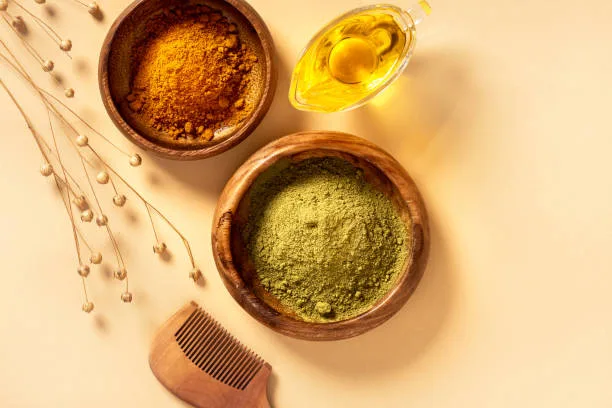
Natural ingredients like honey, avocado, and yogurt can be used to create nourishing hair masks and treatments. These DIY remedies can help hydrate, strengthen and revitalize your hair, promoting growth and overall health.
Regular oil massages can improve circulation to the hair follicles, promote hair growth, and provide a deep conditioning treatment. Coconut oil, olive oil, and argan oil are just a few examples of oils that can work wonders for your hair.
Aloe vera is a versatile natural ingredient that can soothe the scalp, reduce dandruff, and enhance hair growth. Explore other natural products like apple cider vinegar and herbal infusions to improve the health and appearance of your hair.
Conclusion
In this comprehensive guide, we’ve covered the essential tips and strategies for growing long, beautiful hair. Whether your goal is to achieve flowing locks that reach your waist or simply maintain healthier, more manageable hair, these insights will empower you on your hair growth journey. Remember that everyone’s hair is unique and results may vary, but with patience, consistency and the right care, you can achieve the long, luscious locks you desire.
Long hair isn’t just about appearance; it’s also about self care and self expression. So, continue to care for your hair with love and dedication, nourish it from the inside out and celebrate every inch of growth along the way. Your hair, like you is a unique and beautiful part of who you are. Enjoy the journey to long, luscious locks and embrace the beauty in each stage of growth.
FAQ’S:
- How fast does hair typically grow? Hair generally grows at an average rate of about half an inch per month, or six inches per year. However, this rate can vary from person to person.
- Do trims really help hair grow longer? Yes, regular trims are important for preventing split ends and breakage, which can make your hair look shorter. Trimming every 6-8 weeks can maintain the health of your hair and promote growth.
- Can specific foods make my hair grow faster? While there are no magic foods that guarantee faster hair growth, a balanced diet rich in protein, vitamins, and minerals can promote overall hair health and potentially encourage growth.
- How often should I wash my hair to encourage growth? The ideal frequency for hair washing varies depending on your hair type and lifestyle. Over-washing can strip your hair of natural oils, so it’s best to find a balance that suits your needs.
- What’s the best way to protect my hair from environmental damage? To protect your hair from environmental factors like UV rays and pollution, you can use UV-protectant products, wear hats and shield your hair when needed.
- Are there specific hairstyles that help with hair growth? Low-manipulation hairstyles like loose braids and buns can minimize stress on your hair and protect it from damage. These styles can help promote hair growth.
- Is it true that cutting hair makes it grow faster? No, cutting the ends of your hair does not affect the rate of growth from the scalp. However, it can help prevent split ends and breakage, allowing you to retain length.
- How can I balance the desire for tight hairstyles with hair health? If you love tight hairstyles like braids or ponytails, ensure they’re not overly tight, and take breaks to let your hair relax. Balancing tight styles with loose ones can help maintain hair health.
- What role do hormones play in hair growth? Hormones can affect hair growth patterns and hair health. Hormonal imbalances can lead to changes in hair texture and density.
- Do hair growth supplements work, and are they safe? Hair growth supplements can be beneficial if your diet lacks certain nutrients, but they are not a magic solution. Consult a healthcare professional before taking any supplements to ensure they are safe and suitable for your needs.
- How can I manage stress to support hair growth? Managing stress through techniques like meditation, exercise, and relaxation can help maintain hormonal balance and support healthy hair growth.
- Is patience really necessary when growing long hair? Yes, patience is key when growing long hair. Hair growth is a gradual process that requires consistent care and time. Embrace the journey and celebrate small milestones along the way.
- Can I use chemical treatments and still achieve long hair? It’s best to minimize the use of harsh chemical treatments like perms and relaxers, as they can damage your hair. Opt for natural alternatives and gentle styling methods for healthier growth.

